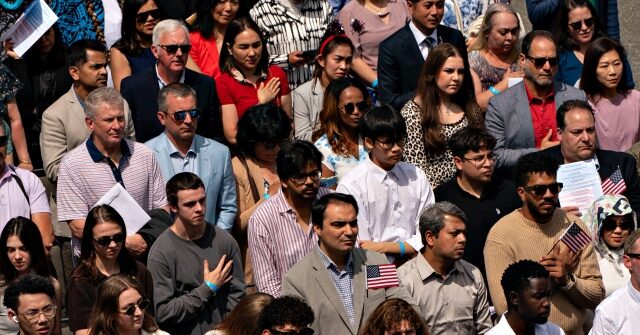USCIS Resumes Strict Vetting for Naturalization Applicants, Reintroducing 'Neighborhood Investigations'
This policy shift increases scrutiny for skilled immigrants pursuing naturalization, potentially extending processing times and demanding additional proactive documentation.

Subscribe to our newsletter and stay informed about latest H1B news, policy updates and and other developments.
Article Summary
USCIS is reinstating 'neighborhood investigations' for legal immigrants applying for U.S. citizenship, a vetting procedure not widely used since 1991. This policy aims to affirm an applicant's 'good moral standing,' with USCIS suggesting applicants can proactively submit testimonial letters to potentially avoid such investigations. USCIS Director Joseph Edlow stated the goal is to ensure only the most qualified individuals receive American citizenship.
Original Article: breitbart.com
[ Sentiment: negative | Tone: factual ]
This summary and analysis were generated by TheNewsPublisher's editorial AI. This content is for informational purposes only; it does not constitute legal or immigration advice.
[ Sentiment: negative | Tone: factual ]
This summary and analysis were generated by TheNewsPublisher's editorial AI. This content is for informational purposes only; it does not constitute legal or immigration advice.
TNP AI: Key Insights
This policy marks a significant re-introduction of a rigorous, more subjective vetting process for naturalization applicants, moving beyond solely biometric and criminal background checks. For skilled professionals on the Green Card path, this means a potentially longer and more intrusive journey to citizenship, requiring proactive engagement to demonstrate 'good moral character.'
The return to 'neighborhood investigations' and the emphasis on testimonial letters adds a new layer of complexity to the naturalization process, reminiscent of procedures largely discontinued in the early 1990s. This shift could lead to increased Requests for Evidence (RFEs) and longer processing times, placing additional burdens on applicants and immigration legal teams.
While USCIS frames this as ensuring only the 'most qualified' receive citizenship, the subjective nature of 'good moral standing' and 'neighborhood investigations' could introduce inconsistencies in application review. This move highlights an ongoing trend of increased scrutiny across various immigration processes, potentially increasing anxiety for those aspiring to U.S. citizenship.




